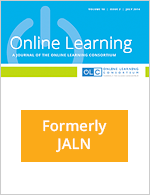Institutional Policy for ALN
For the past five years, Stanford has been involved in developing the capability to offer courses to remote learners over the Internet. This has evolved into a robust operation, which over the past year has offered 180 courses to approximately 4000 distance learners. More recently, the Department of Electrical Engineering...

